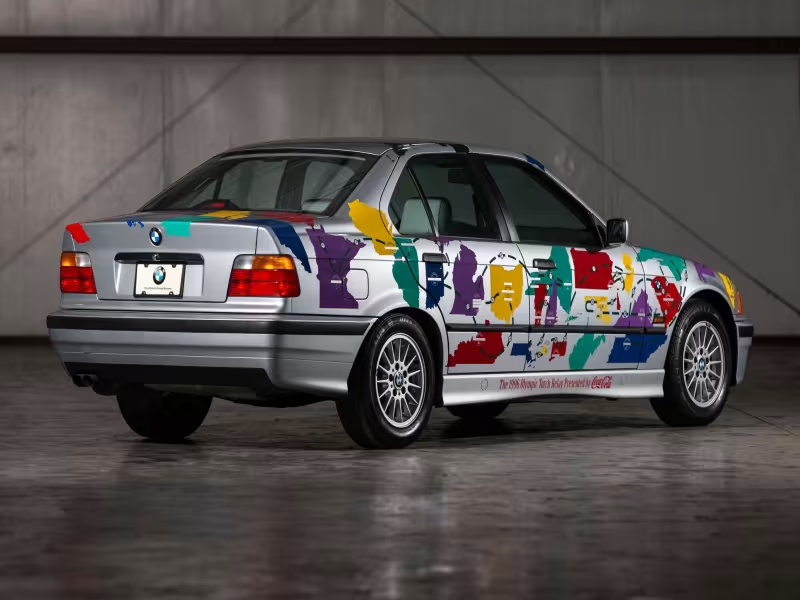
SHERIDAN, WYOMING – May 23, 2025 – When BMW opened its first American manufacturing plant in Spartanburg, South Carolina, in 1994, it marked more than just geographic expansion—it ignited a new era of visibility and connection for the brand in the U.S. That effort reached a dazzling high point in 1996 when BMW became an official sponsor of the Summer Olympics in Atlanta, leveraging its newfound American roots to engage consumers across the country in an unprecedented way.
A Torch Relay Like No Other
The opportunity to sponsor the Olympic Torch Relay came unexpectedly. As Victor Doolan, then-president of BMW of North America, recalled:
“I received a call from Billy Payne [president and CEO of the Atlanta Committee for the Olympic Games], and he asked to see me that day,” Doolan said. “I flew down [from New Jersey], and he told me that General Motors was prevaricating about sponsoring the Torch Relay. Would BMW be interested? I jumped at the chance without asking anyone.”
That snap decision secured BMW’s place as the Official International Automobile Sponsor of the 1996 Olympic Games and the U.S. Olympic Team. More than just a title, it placed BMW vehicles—including the newly produced Z3 roadster and 328i sedan—at the heart of a 17,000-mile relay that captivated the country.
Showcasing Style and Spirit Across America
BMW didn’t just support the Torch Relay—it made it a mobile celebration. A specially designed 328i, wrapped with a colorful map of the relay route, became the event’s signature vehicle.
“The Torch Relay gave us the opportunity to showcase our vehicles in their natural habitat, the roads of America,”said Doolan. “This was critical. We needed to reach our market in the most effective way.”
BMW’s convoy included Z3s, 3, 5, and 7 Series cars, along with motorcycles, drawing attention to the brand’s craftsmanship and its new American manufacturing presence.
“If we make a parade of BMWs, what a great way to draw attention to BMW… but also to demonstrate our commitment to America,” added Jim McDowell, then VP of Marketing.
Bringing Communities Together
The Torch Relay wasn’t just a media event; it was a community celebration. At each stop, BMW dealerships hosted festivities like Olympic Days for Kids, themed road rallies, and send-offs for local torchbearers. Consumers could get up close with BMW vehicles, participate in events, and collect branded souvenirs ranging from Olympic pins to commemorative mugs.
To drive even more excitement, BMW released a limited-edition 1996 Olympic Games 525i. With distinctive Oxford Green paint, luxurious Parchment leather seats, and official Olympic badging, only 500 were made—and all quickly sold. A similarly themed R 850 R motorcycle and a folding red-white-and-blue mountain bike extended the brand's Olympic flair to two wheels.
More Than a Sponsorship
Beyond the pageantry, BMW’s Olympic involvement underscored a deeper transformation.
“The commitment to invest in an American factory was obviously the most significant event of the period,” noted BMW’s Jim McGurn. “The Spartanburg plant made it legitimate for BMW to take a visible role in the 1996 Olympics.”
BMW vehicles served VIPs, carried media personnel, and supported Olympic logistics throughout the Games. Meanwhile, its hospitality center in Atlanta welcomed dealers, partners, and employees—reaffirming the company’s long-term vision for the U.S. market.
A Legacy That Endures
From a bold decision to sponsor the Torch Relay to launching exclusive Olympic-edition vehicles, BMW transformed its Olympic partnership into a defining chapter in its American journey. More than a brand showcase, the Games helped cement BMW as a vibrant, visible, and deeply invested player in U.S. culture and commerce.
Learn more about BMW’s American story and Olympic legacy at bmwusa.com.